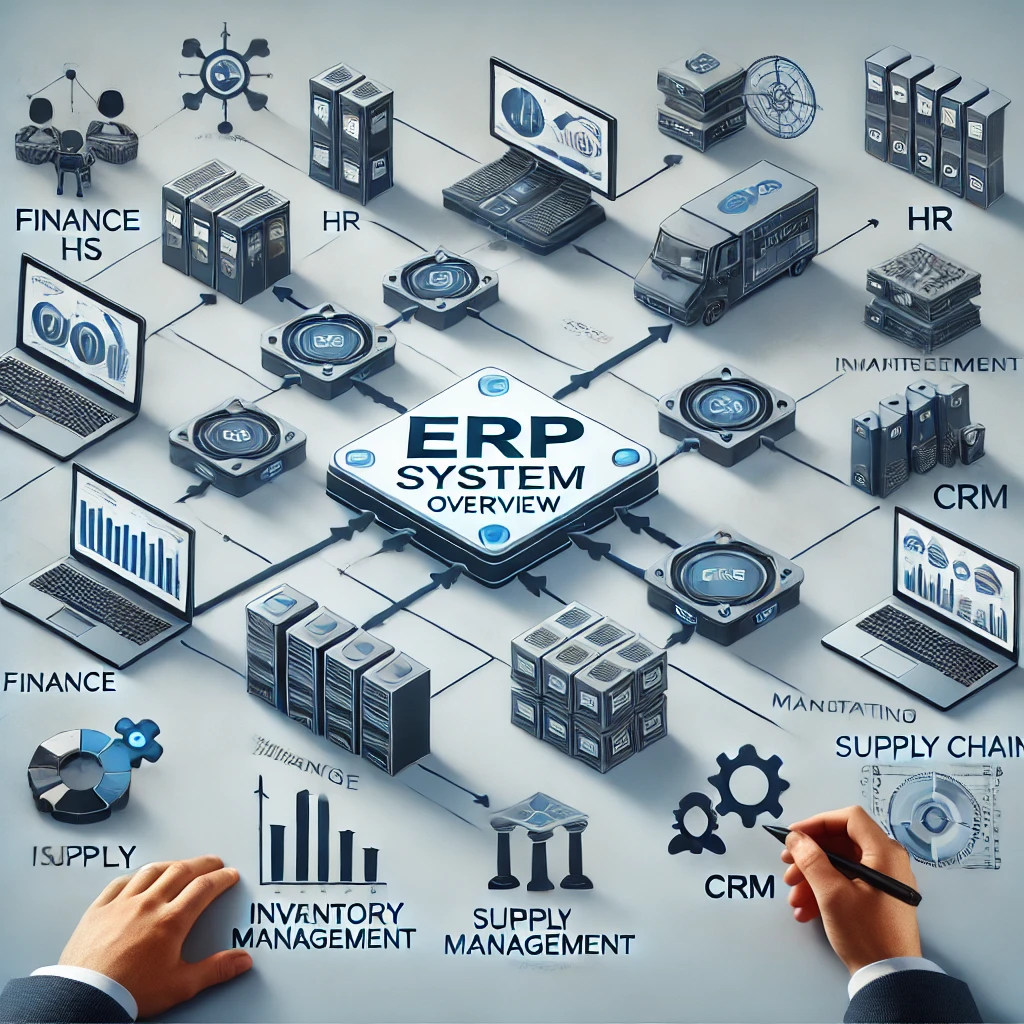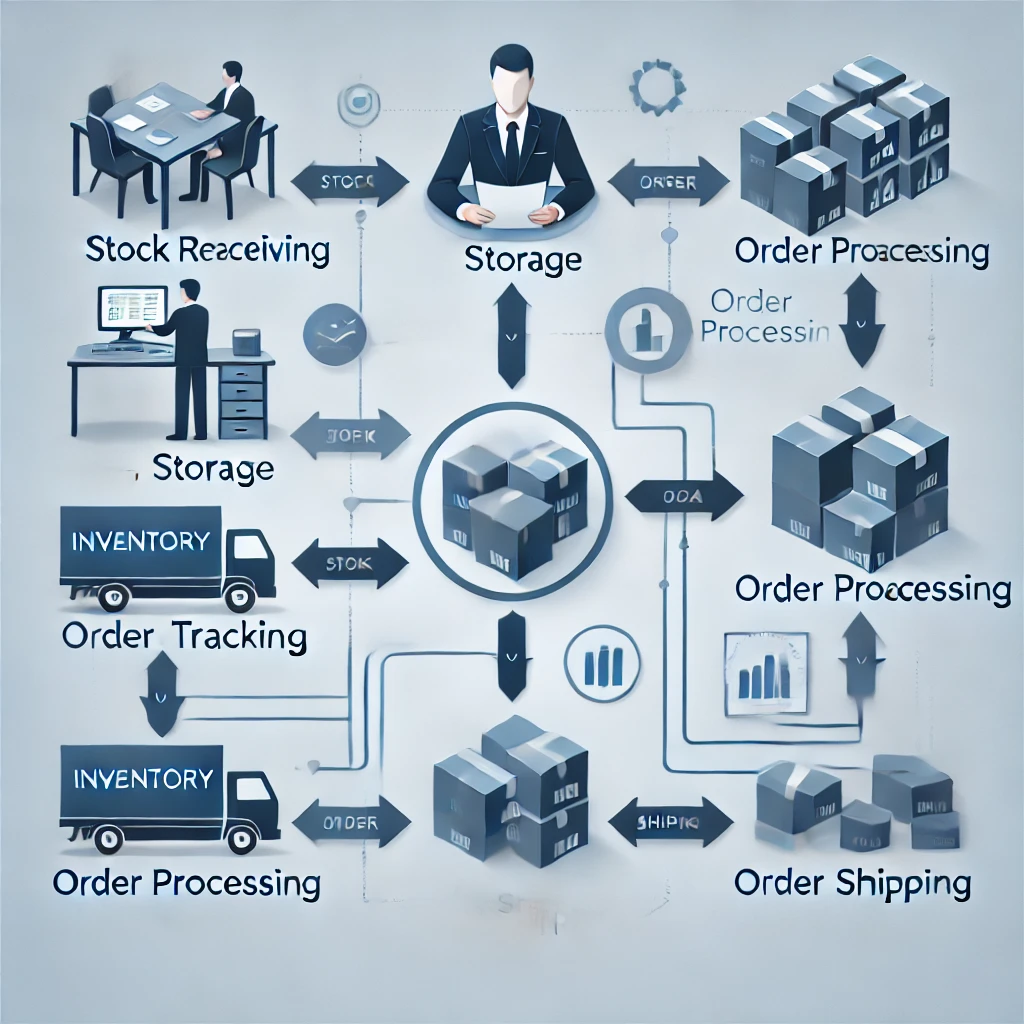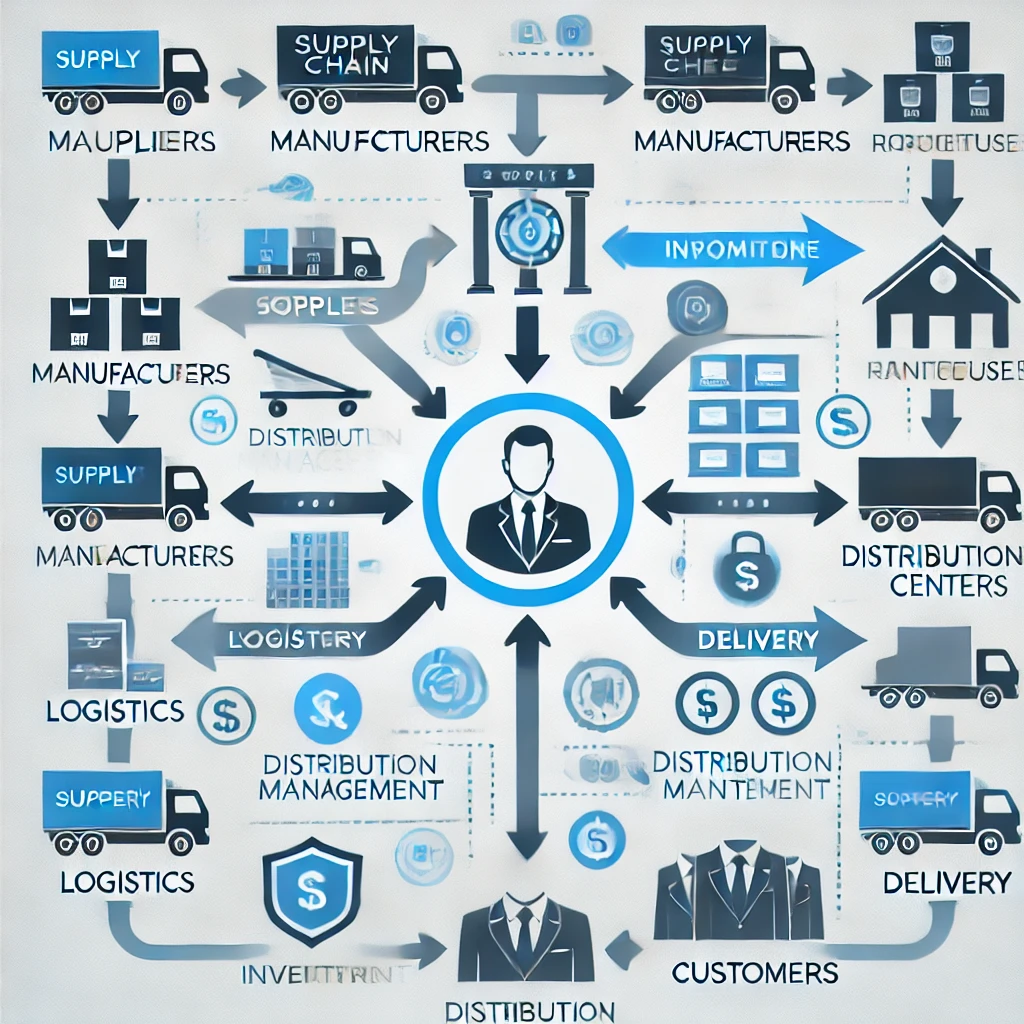Introduction
Enterprise Resource Planning (ERP) systems have become an integral part of modern businesses, enabling seamless integration of various functions into a single system. ERP modules cater to different business needs, ensuring efficiency, accuracy, and automation. In this blog, we will explore the importance of ERP modules, the various types available, their use cases, and the key functions they serve.
Importance of ERP Modules
ERP modules play a crucial role in streamlining business operations by centralizing data, reducing redundancy, and improving decision-making. These modules help organizations achieve operational efficiency, enhance customer satisfaction, and comply with industry regulations. With an ERP system, businesses can better manage resources, reduce costs, and improve collaboration among departments.
List of ERP Modules
ERP systems consist of various modules tailored to meet different business requirements. Some of the essential ERP modules include:
- Finance and Accounting Module
- Human Resource Management (HRM) Module
- Inventory Management Module
- Supply Chain Management (SCM) Module
- Customer Relationship Management (CRM) Module
- Manufacturing Module
- Sales and Marketing Module
- Procurement Module
- Project Management Module
- Business Intelligence (BI) Module
- Warehouse Management Module
- E-commerce Integration Module
- Quality Management Module
Use Cases of ERP Modules
Each ERP module serves a specific purpose and is beneficial across different industries. Some common use cases include:
- Finance and Accounting: Automating financial reporting, budgeting, and tax compliance.
- HRM: Managing payroll, employee records, and performance evaluations.
- Inventory Management: Tracking stock levels, reducing wastage, and forecasting demand.
- SCM: Streamlining procurement, logistics, and supplier management.
- CRM: Enhancing customer engagement, tracking interactions, and managing leads.
- Manufacturing: Optimizing production schedules, tracking work orders, and ensuring quality control.
- Sales and Marketing: Managing sales pipelines, tracking campaigns, and generating reports.
- Project Management: Planning, executing, and monitoring projects efficiently.
- Business Intelligence: Providing data-driven insights for strategic decision-making.
Functions of ERP Modules
ERP modules are designed to enhance various business functions, including:
- Automation: Reducing manual work by automating repetitive tasks.
- Data Integration: Ensuring seamless flow of information across departments.
- Reporting and Analytics: Providing real-time insights for better decision-making.
- Resource Optimization: Managing workforce, inventory, and finances effectively.
- Compliance and Security: Ensuring regulatory compliance and data security.
- Scalability: Adapting to business growth and changes.
Conclusion
ERP modules are essential for organizations looking to enhance efficiency, reduce costs, and improve overall business performance. By implementing the right ERP modules, businesses can achieve better coordination, real-time visibility, and streamlined operations. Whether it’s finance, HR, inventory, or customer management, ERP systems provide a unified solution that drives growth and success.
The implementation of an ERP system is not just about integrating different business functions; it is about transforming the way an organization operates. With the right modules in place, businesses can gain a competitive advantage, improve customer experiences, and ensure operational excellence. The ability to automate routine tasks, enhance collaboration between departments, and provide real-time data insights allows companies to make informed decisions and adapt to market changes swiftly.
Furthermore, ERP systems play a vital role in regulatory compliance and risk management. By standardizing processes and maintaining accurate records, businesses can easily adhere to industry regulations and prevent potential legal complications. This level of transparency and accountability is critical in today’s highly regulated business environment.
The future of ERP systems is also evolving with advancements in cloud computing, artificial intelligence (AI), and data analytics. Cloud-based ERP solutions are making these systems more accessible and scalable, allowing businesses of all sizes to leverage their benefits without significant upfront investments. AI-powered analytics and automation are further enhancing decision-making, predictive analysis, and process optimization, ensuring that organizations remain agile in an increasingly competitive landscape.
In conclusion, ERP modules are not just tools but strategic assets that help businesses optimize their operations, improve efficiency, and drive long-term growth. Companies that invest in a well-structured ERP system with relevant modules tailored to their needs can experience higher productivity, reduced costs, and improved customer satisfaction. As technology continues to advance, ERP systems will become even more intelligent and integrated, paving the way for smarter, more efficient business management. Organizations that embrace this transformation will be better positioned for success in the digital age.
About us
We are Timus Consulting Services, a fast-growing, premium Governance, Risk, and compliance (GRC) consulting firm, with a specialization in the GRC implementation, customization, and support.
Our team has consolidated experience of more than 15 years working with financial majors across the globe. Our team is comprised of experienced GRC and technology professionals that have an average of 10 years of experience. Our services include:
- GRC implementation, enhancement, customization, Development / Delivery
- GRC Training
- GRC maintenance, and Support
- GRC staff augmentation
Our team
Our team (consultants in their previous roles) have worked on some of the major OpenPages projects for fortune 500 clients across the globe. Over the past year, we have experienced rapid growth and as of now we have a team of 15+ experienced and fully certified OpenPages consultants, OpenPages QA and OpenPages lead/architects at all experience levels.
Our key strengths:
Our expertise lies in covering the length and breadth of the IBM OpenPages GRC platform. We specialize in:
- Expert business consulting in the GRC domain, including use cases like Operational Risk Management, Internal Audit Management, Third-party Risk Management, IT Governance, amongst others
- OpenPages GRC platform customization and third-party integration
- Building custom business solutions on OpenPages GRC platform
Connect with us:
Feel free to reach out to us for any of your GRC requirements.
Email: [email protected]
Phone: +91 9665833224
WhatsApp: +44 7424222412
Website: www.Timusconsulting.com










